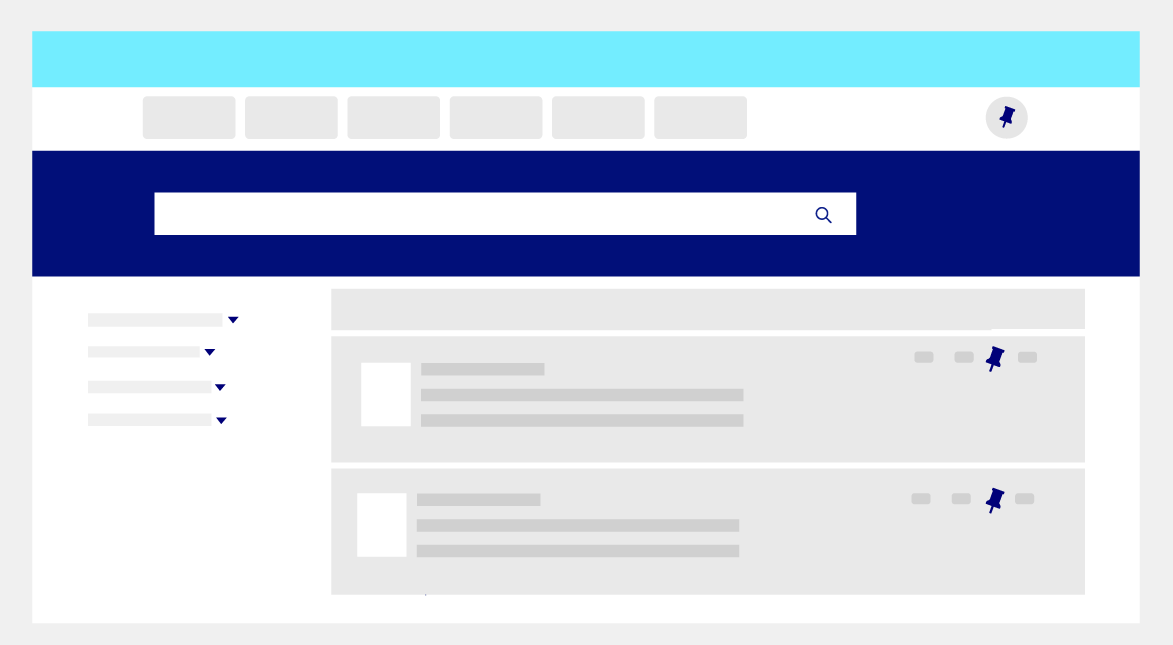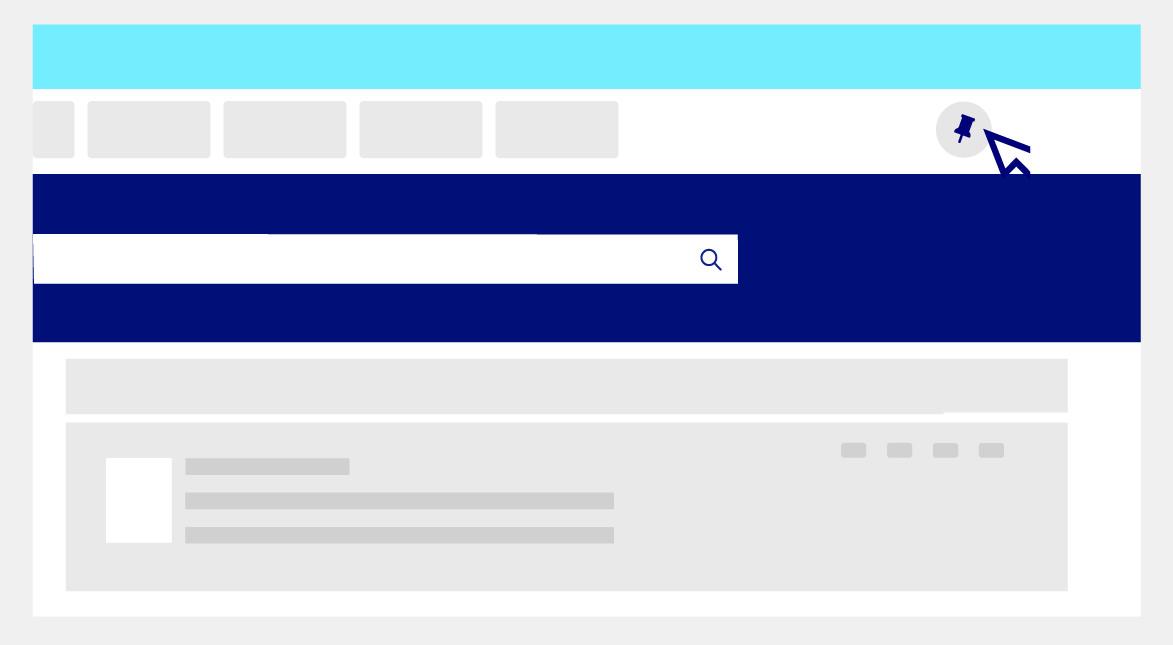A step-by-step example of how to use the advanced search tool.

Get to know the Library's search engine
Search Tips
Where to search
Choose any of these options from the search engine's drop-down menu:
- All: all the contents available in the UOC Library, the O2 Repository and the recommended reading of the courses.
- UOC and other libraries: get results from the UOC and from other Spanish and international libraries, including the Catalan University Union Catalogue.
- Recommended reading: just the resources recommended by the University's teaching staff for further information on the courses.
- Learning resources: search among the materials prepared by the UOC and used in the classrooms.
- The O2 repository: consult contents prepared by the UOC community and available with open access. This may be, for example, final projects or scientific articles.
- Catalan University Union Catalogue: broaden your search with the contents available in other Catalan university libraries. You can request books on loan or digital articles.
Filters
The filters will help you hone your searches. The main filters are:
- Availability: choose the type of document which interests you according to the format (online or physical copy), whether it is open access or the quality (whether it is peer-reviewed).
- Type of resource: choose the type of documents, books, articles, theses or videos.
- Journal title: thanks to this filter you will see the articles from the publications which have the term searched for in the title.
- UOC collection: Special series of content grouped by the UOC.
- Subject: get results for a specific discipline.
To further finetune the results, you can select other filters such as the date or language.
The advanced search tool
The advanced search tool will guide you to faster and more accurate results.
You'll find the Advanced Search button integrated in the Library search engine. Log in with your UOC Campus credentials to benefit from all that the search engine offers.
Just fill in the different fields:
Search for
Choose where you want to search for information:
- All UOC sources: this is the default option, as well as the most complete. Search through all the content available in the UOC Library.
- UOC Recommended reading: search only among the resources recommended by the university's teaching staff.
- UOC Learning resources: search only among the training materials produced by the UOC and used in the classrooms.
- UOC O2 repository: search only among content produced by the UOC community and available in open access.
- Catalan University Union Catalogue: search also among the contents of other Catalan university libraries.
Search filters
A. Search field: the part of the content in which the keywords should appear.
- Any field: you'll get results containing your keywords in any field of the document.
- You can also search in a specific field, such as the publication's title, author, subject or ISSN.
B. Search type:
- Contains: the results will contain all the keywords you've entered, regardless of order or position.
- Contains exact phrase: the results will include the keywords exactly as you typed them, in the same order and position. This works only for searches in the author, title or subject field.
- Starts with (title search only): results whose title begins with the words you typed. You can skip or keep the initial article.
C. Boolean operators
The Boolean operators listed let you play around with, combine, and indicate relationships between the search terms.
They may appear translated into the language you've configured in the search engine: AND (or I or Y), OR (or O) and NOT (or NO).
AND |
OR |
NOT |
|---|---|---|
| The results contain all the search terms. | The results contain at least one of the search terms. | The results exclude one of the search terms. |
| Travel AND Europe | College OR university | Mustang NOT animal |
| You'll get results about travelling in Europe. | You'll get results with college, university and both terms together. | You'll get results about the car and not about horses. |
Other filters
- Material Type: journals, books, articles, images, sound recordings, videos/films and theses.
- Language: you can search in any language. Most scientific and academic publications are written in English.
- Publication year: this allows you to set a date range.
The Boolean operators
The operators AND, OR and NOT (they must be written in capital letters) help you refine your results in the Library resources search engine. You can use these operators to combine the search terms and establish relationships between them.
In the Library search box, Boolean operators are used in English and in upper case.
How can I use them?
How can I refine my results even more? Combine the Boolean operators as often as you want to create personalized search formulas.
AND |
OR |
NOT |
|---|---|---|
| The results contain all the search terms. | The results contain at least one of the search terms. | The results exclude one of the search terms. |
| Travel AND Europe | College OR university | Mustang NOT animal |
| You'll get results about travelling in Europe. | You'll get results with college, university and both terms together. | You'll get results about the car and not about horses. |
As in mathematics, you can use brackets to define the order in which the terms must be interpreted: the search engine reads first the words in brackets. For example, if you write your search as (children OR adolescents) AND learning, the search engine will first interpret that you only want information about children or adolescents and will then relate these results with learning.
Furthermore, if you want to search for results that contain a specific phrase, you can use inverted commas. For example: If you write "Olympic games", you will get results with the words "Olympic Games" in that order and together.
Other useful search tips
Try these tricks in the Library search tool. You can also use them in most academic information search tools:
- The asterisk (*) is a wildcard. If you use it next to the root of a word, you will recover results that include all its variations.
Entering cultur* will retrieve content with the terms culture, cultural and culturally.
If you enter subject: librar*, you will recover all the documents that contain library, libraries or librarians as subjects.
- If you add * or a question mark (?), you will replace a single letter of the word.
Entering wom?n will retrieve content for women in plural and woman in singular.
- The operators AND, NO and OR allow you to combine search terms.
If you search for college OR university, you will retrieve information that contains one or both terms.
- Adding quotation marks (" ") at the beginning and end of a phrase or group of words retrieves results for exactly those words.
If you search for "borderline personality disorder", you will see only documents that contain this exact phrase.
If you enter “history teaching” in the search box, you will obtain results such as Teaching History.







